Review: The Annual Cabaret Convention Concerts At Rose Theater Are For The Fans Old And New
Some observations and some highlights.
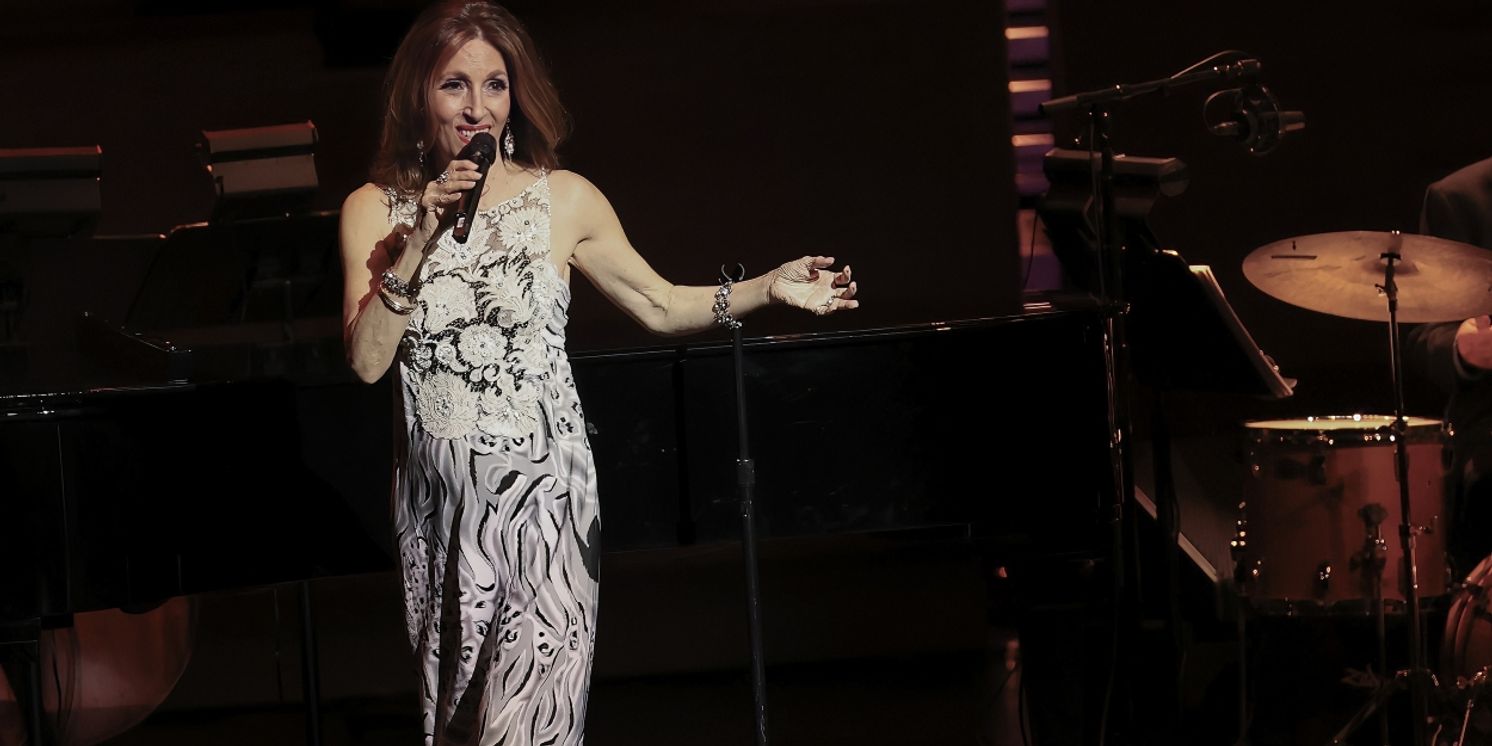
Old-timers and newcomers cross paths at the annual Cabaret Convention presentations. Veteran performers who have been on the bill regularly share the stage with those joining the ranks for the first time. Attending again this year, my cabaret-loving heart was gladdened by the appearances of veterans who epitomize the art of inhabiting a dramatic 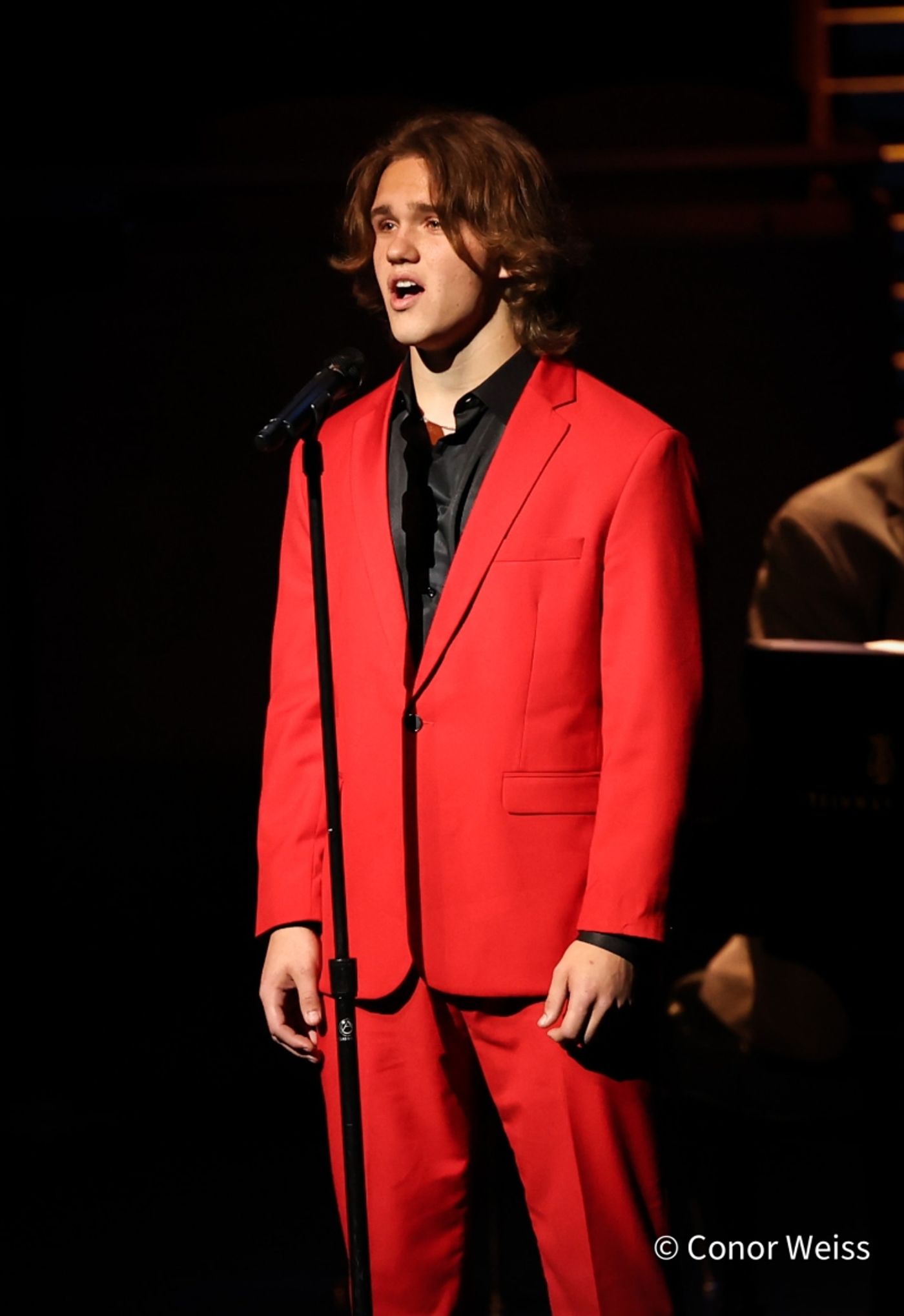 song — such as Karen Akers and Natalie Douglas – and the reliably night-brightening ZING of Klea Blackhurst and Billy Stritch. In the “new” category, there’s nothing “iffy” about the disarming impact of the guy who gorgeously sang “If,” the 1971 pop hit ballad, with perfect poignancy; sharing part of the name of the venue, Jazz At Lincoln Center, he’s Lincoln Johnson. (And he’s still in high school.) There are many members of the audience who’ve been loyally attending the concerts for many of its 34 years (at its various locations), but I’ve been thinking about those in the crowd who were belatedly discovering the material, its interpreters, and the cabaret approach. Our familiar world — the standards we’ve heard many versions of and the singers greeted with welcome applause — may not be so much on the radar of those high school students in the balcony and others. I won’t attempt to list everything or even all the highlights in the marathon of music, but there was plenty that was pleasing and potent and some that was “pow” for me, and, I hope, for some of those not yet dyed-in-the-wool fans who could become cabaret converts via cabaret concerts.
song — such as Karen Akers and Natalie Douglas – and the reliably night-brightening ZING of Klea Blackhurst and Billy Stritch. In the “new” category, there’s nothing “iffy” about the disarming impact of the guy who gorgeously sang “If,” the 1971 pop hit ballad, with perfect poignancy; sharing part of the name of the venue, Jazz At Lincoln Center, he’s Lincoln Johnson. (And he’s still in high school.) There are many members of the audience who’ve been loyally attending the concerts for many of its 34 years (at its various locations), but I’ve been thinking about those in the crowd who were belatedly discovering the material, its interpreters, and the cabaret approach. Our familiar world — the standards we’ve heard many versions of and the singers greeted with welcome applause — may not be so much on the radar of those high school students in the balcony and others. I won’t attempt to list everything or even all the highlights in the marathon of music, but there was plenty that was pleasing and potent and some that was “pow” for me, and, I hope, for some of those not yet dyed-in-the-wool fans who could become cabaret converts via cabaret concerts.
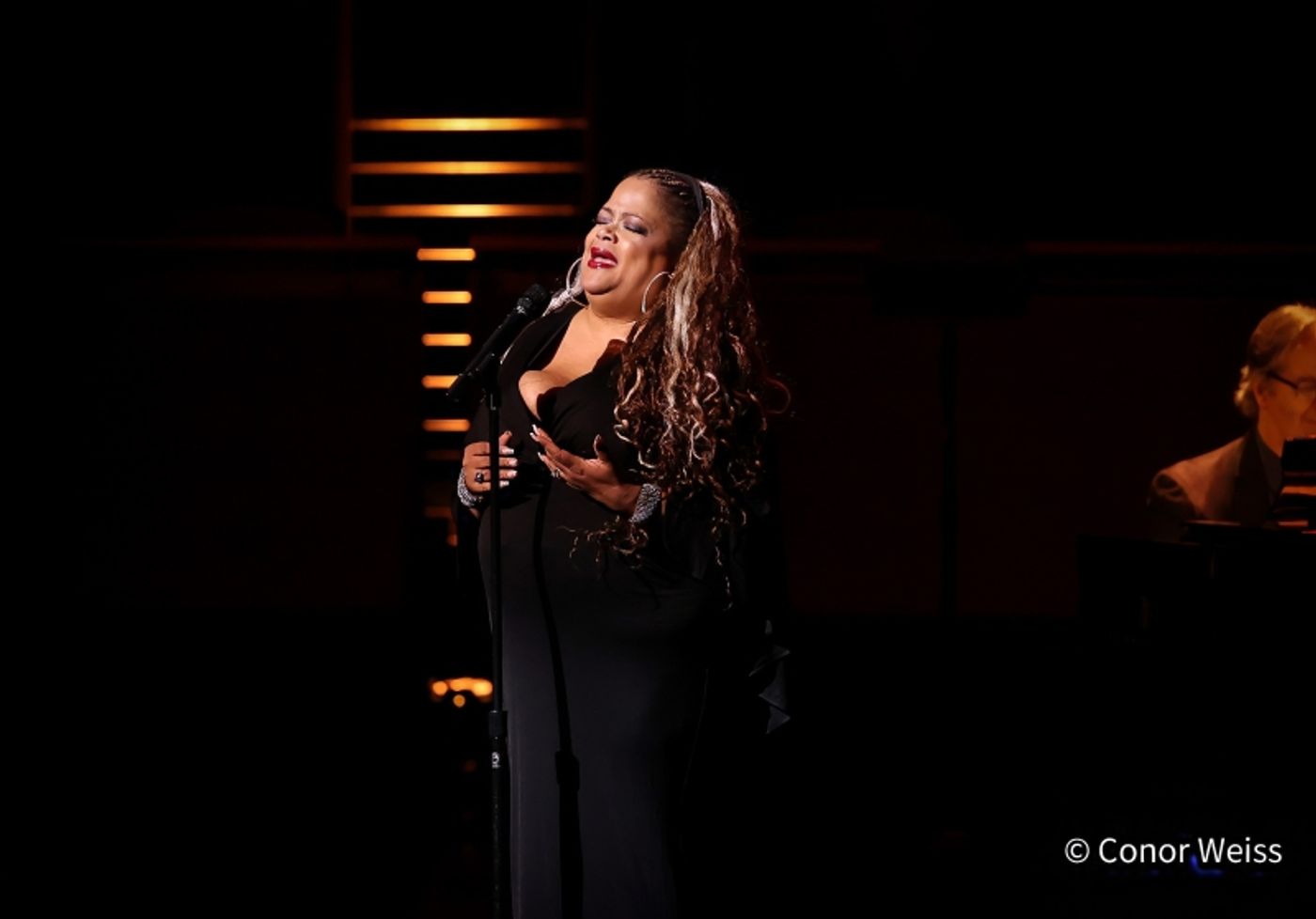
As I sat in the big crowd this year, I wondered what the young and not-fully-immersed observers felt, venturing into Cabaretville. Did they feel like foreigners – strangers in a strange land? Was their reaction echoed by the song titles “This Is New” and “I’m a Stranger Here Myself,” two of the numbers on the first night, which was dedicated to selections from musicals with melodies by the German-born Kurt Weill? And, for those also in the auditorium the third night, when “I’m a Stranger Here Myself” came up again, was it noted as an impressive example of how material can find success in two very different, equally valid personalized approaches? Presented on opening night, it was emotionally 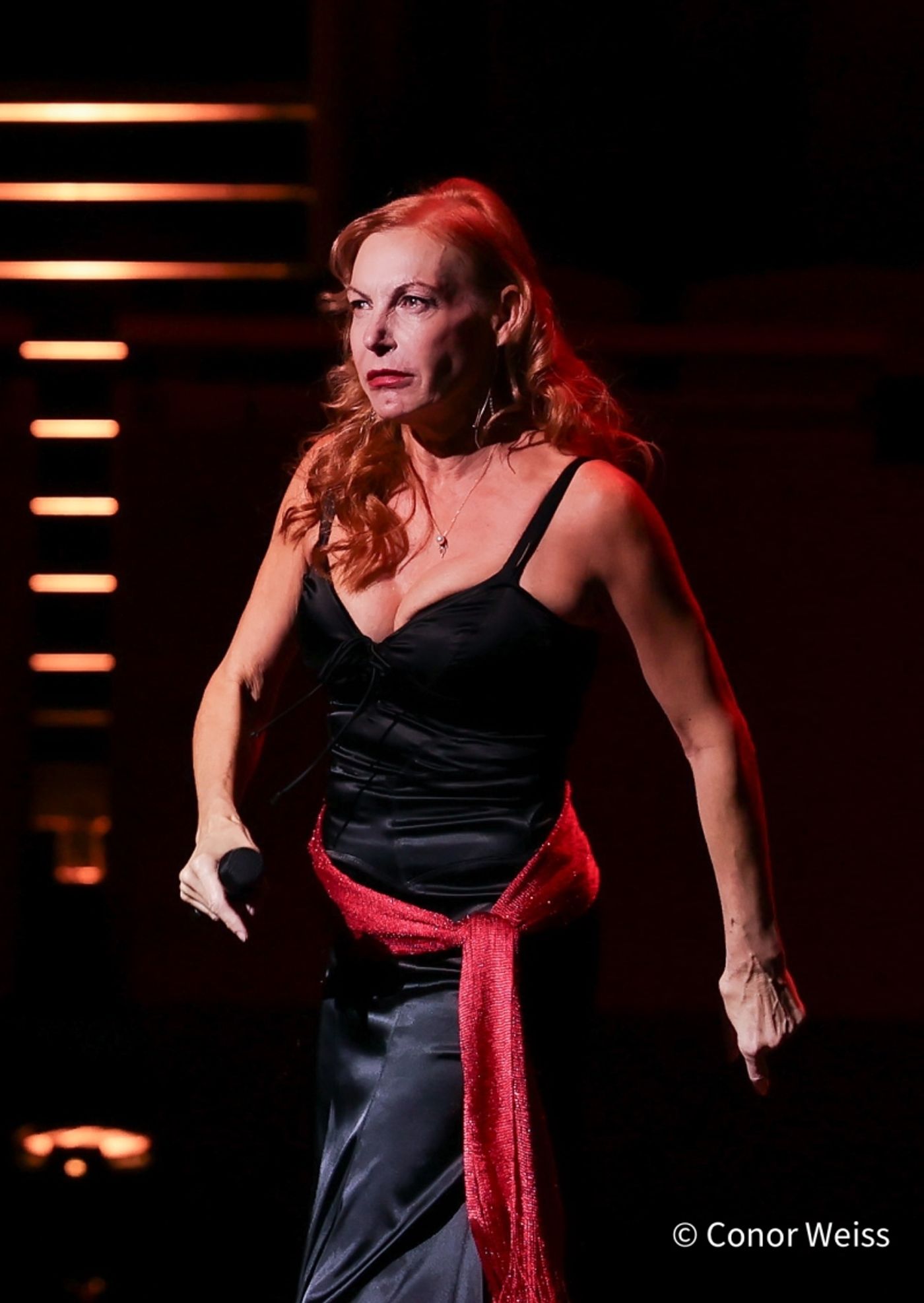 kinetic with Clint Holmes biting into the feelings of frustration and keen observations in Ogden Nash’s lyric. In calmer mode, when Lizzie Buller tried it on for size, she played up the bemusement and bewilderment, even finding a laugh after the words “waiting for my cue” to give it a double meaning by pausing and looking behind her at the pianist. As far as “This Is New,” perhaps the attractive, well-placed voice of Therese Lee was a new reason to go to the cabaret room at Don’t Tell Mama on Saturday night where she will be doing her own show. Many who are included on these bills only get one song in the spotlight and that’s enough of a showcase moment to be memorable and distinctive so that the small taste whets our appetite for such a full meal by the same musical chef on another night. Others get more time but can risk giving the impression of solipsistically overstaying their welcome. While Ute Lemper is inarguably steeped in Weill with an authentic commitment, and her rich tones add to the drama performing the chilling “Pirate Jenny,” her segments in both halves of the program went on and on. And on. Less egregiously, with flair, Karen Kohler, another longtime devotee of the musical ethos of the era in Germany, was on stage for quite a Weill–I mean, quite a while— coming on in full character from the musical Happy End, for many spoken lines as well as “That Old Bilbao Moon.”
kinetic with Clint Holmes biting into the feelings of frustration and keen observations in Ogden Nash’s lyric. In calmer mode, when Lizzie Buller tried it on for size, she played up the bemusement and bewilderment, even finding a laugh after the words “waiting for my cue” to give it a double meaning by pausing and looking behind her at the pianist. As far as “This Is New,” perhaps the attractive, well-placed voice of Therese Lee was a new reason to go to the cabaret room at Don’t Tell Mama on Saturday night where she will be doing her own show. Many who are included on these bills only get one song in the spotlight and that’s enough of a showcase moment to be memorable and distinctive so that the small taste whets our appetite for such a full meal by the same musical chef on another night. Others get more time but can risk giving the impression of solipsistically overstaying their welcome. While Ute Lemper is inarguably steeped in Weill with an authentic commitment, and her rich tones add to the drama performing the chilling “Pirate Jenny,” her segments in both halves of the program went on and on. And on. Less egregiously, with flair, Karen Kohler, another longtime devotee of the musical ethos of the era in Germany, was on stage for quite a Weill–I mean, quite a while— coming on in full character from the musical Happy End, for many spoken lines as well as “That Old Bilbao Moon.”
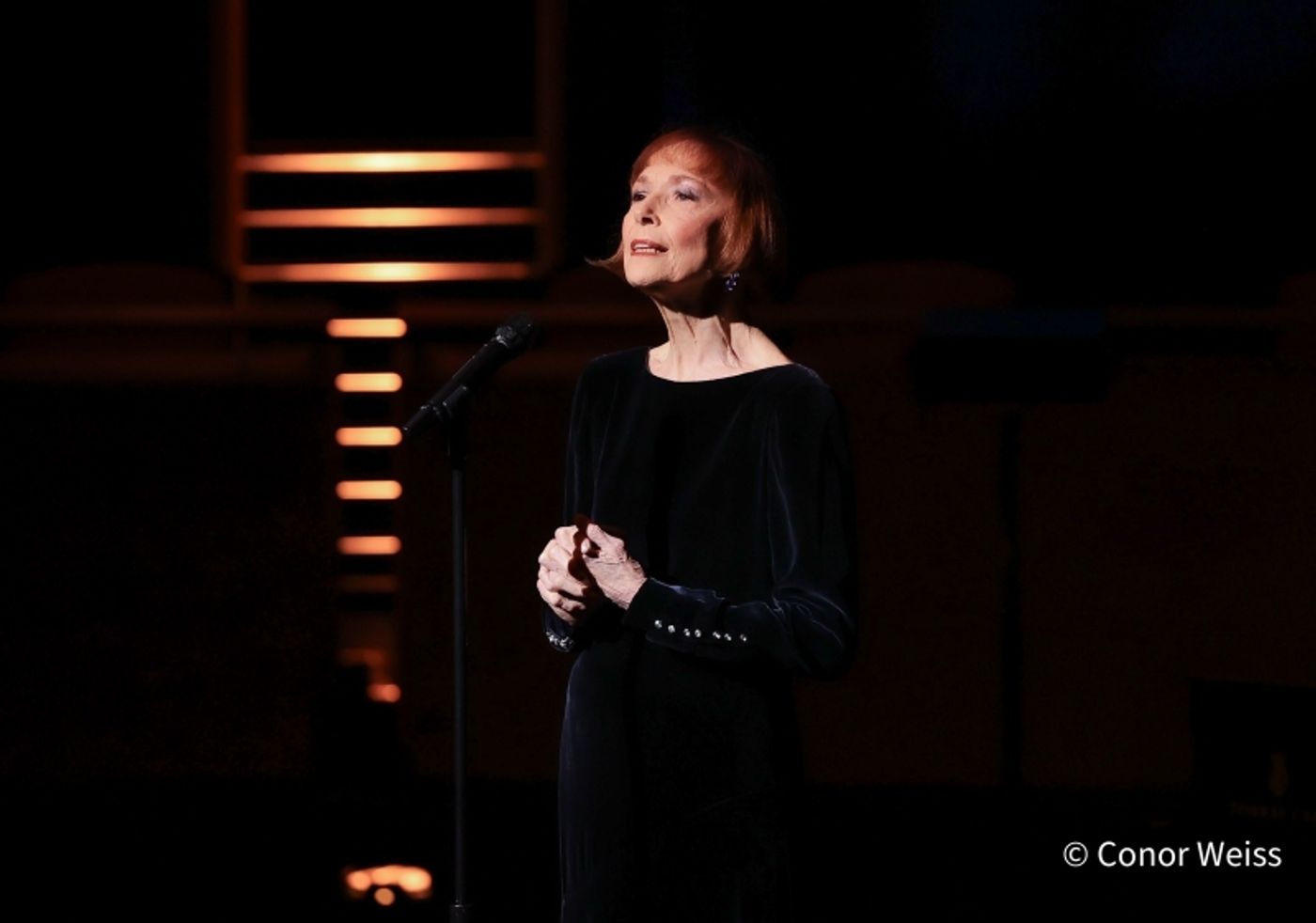
The Weill night offered no bounty of bio bits about the composer, only occasionally mentioning the names of his lyricist collaborators. Most singers just sang, and the verbiage in the introductions by co-hosts Andrea Marcovicci and Jeff Harnar, was mostly relegated to noting and quoting the singers’ own credits and kudos, plus plugs for their upcoming solo shows (announced on offstage mics in the darkness, the M.O. that may save time, but feels more anonymous and obligatory).
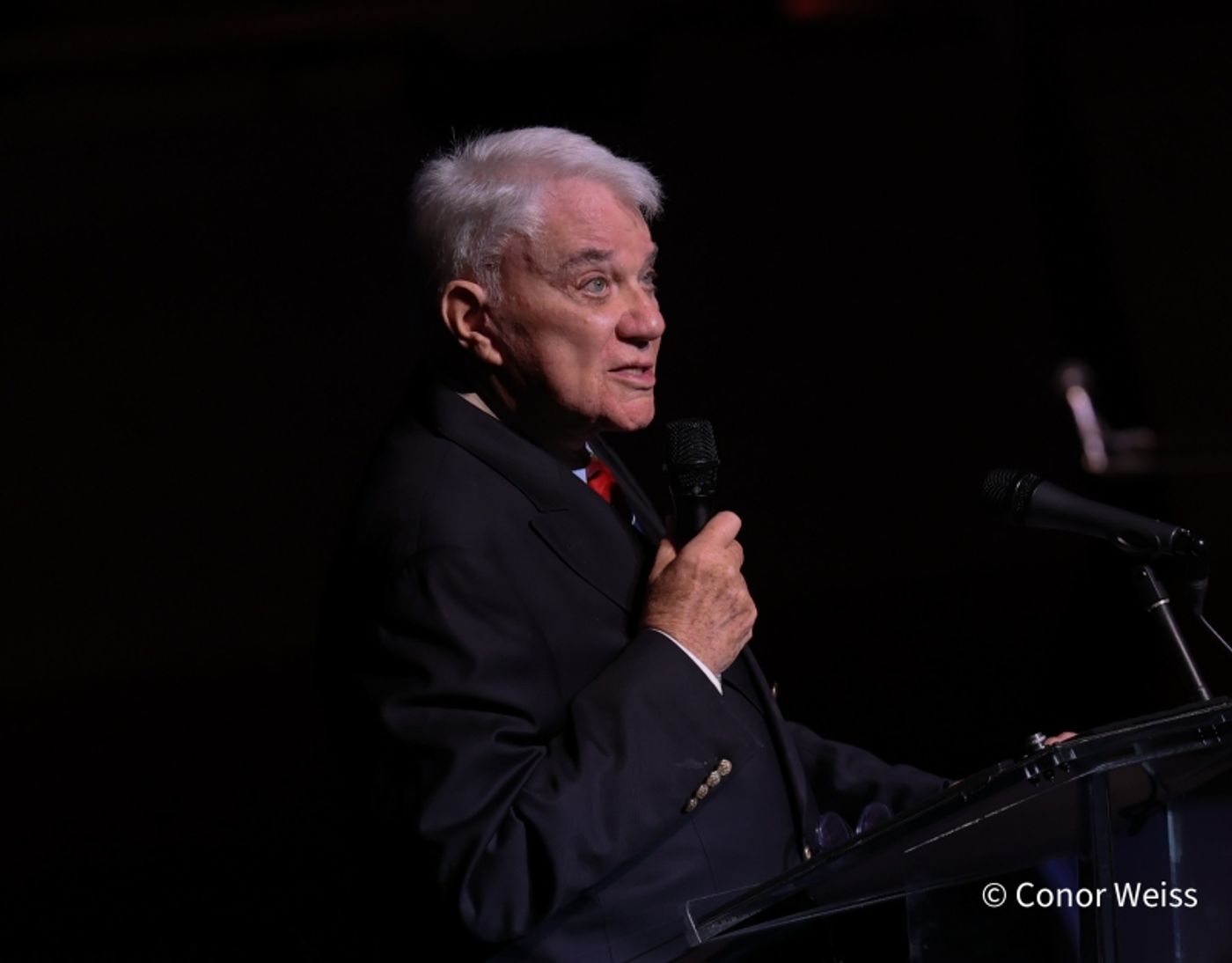 On the other hand, there was history galore–and more–in store on the second night’s program of songs from the career of Doris Day, thanks to host Rex Reed, who knew her, and offered a voluminous running commentary. And, yes, he sang, too, in a sort of Doris-influenced modest way. This Doris Day celebration/education/narration situation was a strong reminder of her star status and the dwelled-upon sad sides of her personal life. For some ticket-holders holding a special place in their hearts for the lady, the program could fulfill the promise of its title, Sentimental Journey (named for her early hit), and perhaps was intriguing for others to journey into her repertoire of recordings and musical films. Two who may well have encouraged that trip –by aptly approaching her style and sensibility — were Maud Hixson and Karen Oberlin.
On the other hand, there was history galore–and more–in store on the second night’s program of songs from the career of Doris Day, thanks to host Rex Reed, who knew her, and offered a voluminous running commentary. And, yes, he sang, too, in a sort of Doris-influenced modest way. This Doris Day celebration/education/narration situation was a strong reminder of her star status and the dwelled-upon sad sides of her personal life. For some ticket-holders holding a special place in their hearts for the lady, the program could fulfill the promise of its title, Sentimental Journey (named for her early hit), and perhaps was intriguing for others to journey into her repertoire of recordings and musical films. Two who may well have encouraged that trip –by aptly approaching her style and sensibility — were Maud Hixson and Karen Oberlin.
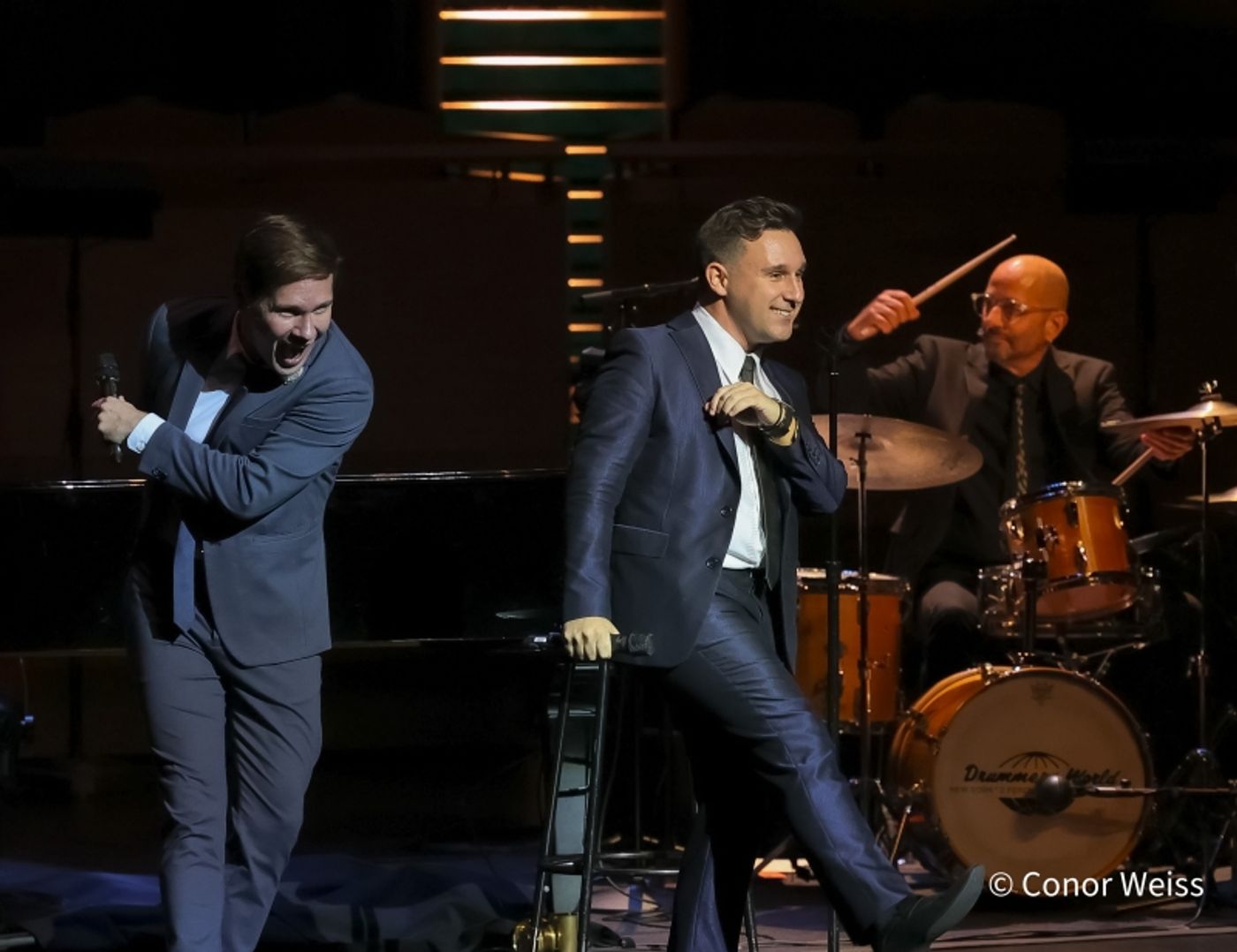
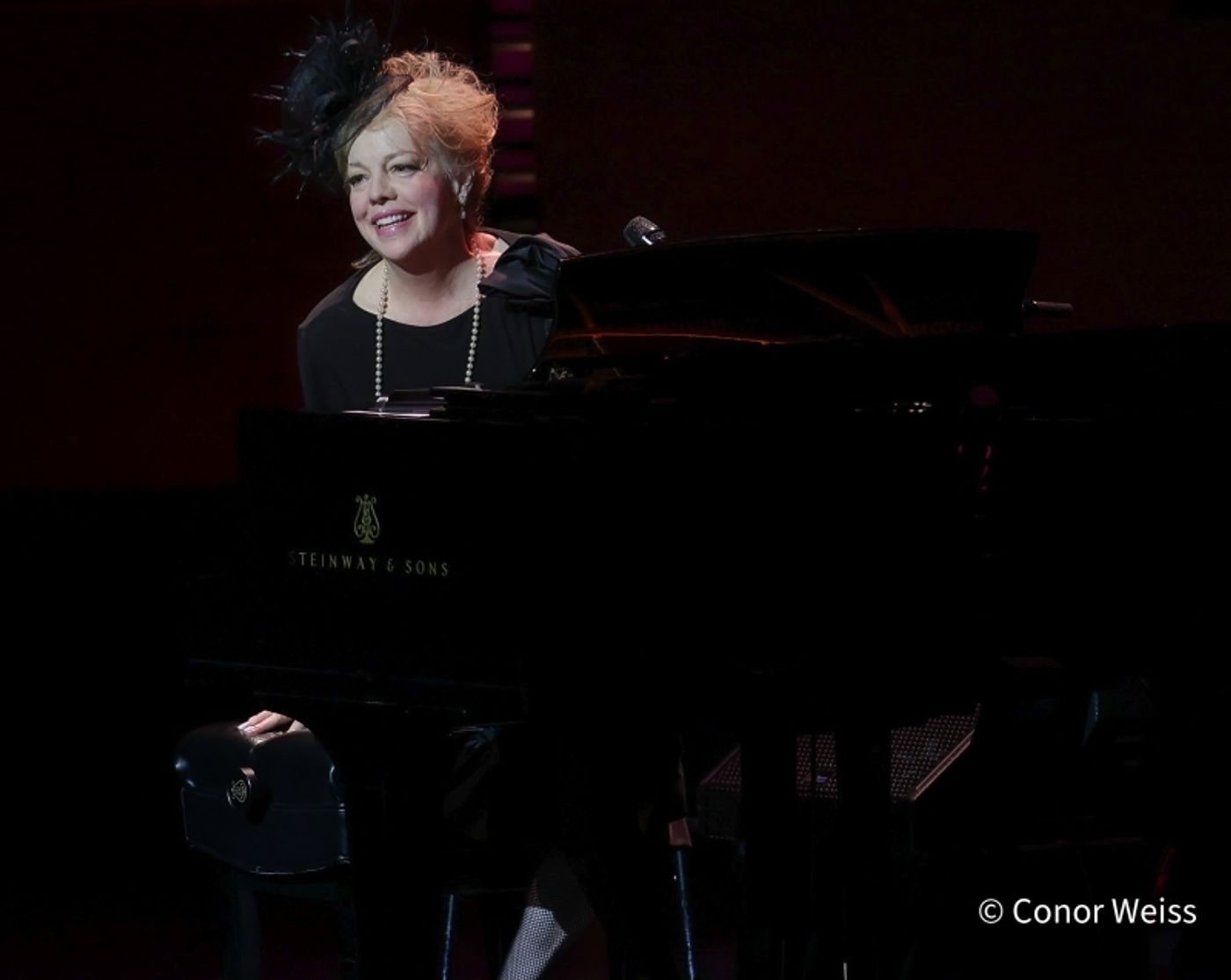 On the last night, KT Sullivan, Artistic Director of the presenting organization, The Mabel Mercer Foundation, hosted. She is determined in her mission to bring the classic songs and the art of cabaret to new and younger audiences, evident from the strong presence of students filling many of the seats. She opened the festivities with the warm welcome of “Hello, Young Lovers,” a graceful and tender entrance to the finale. The lyric seemed to come from her heart, not just from the pen of Oscar Hammerstein.
On the last night, KT Sullivan, Artistic Director of the presenting organization, The Mabel Mercer Foundation, hosted. She is determined in her mission to bring the classic songs and the art of cabaret to new and younger audiences, evident from the strong presence of students filling many of the seats. She opened the festivities with the warm welcome of “Hello, Young Lovers,” a graceful and tender entrance to the finale. The lyric seemed to come from her heart, not just from the pen of Oscar Hammerstein.
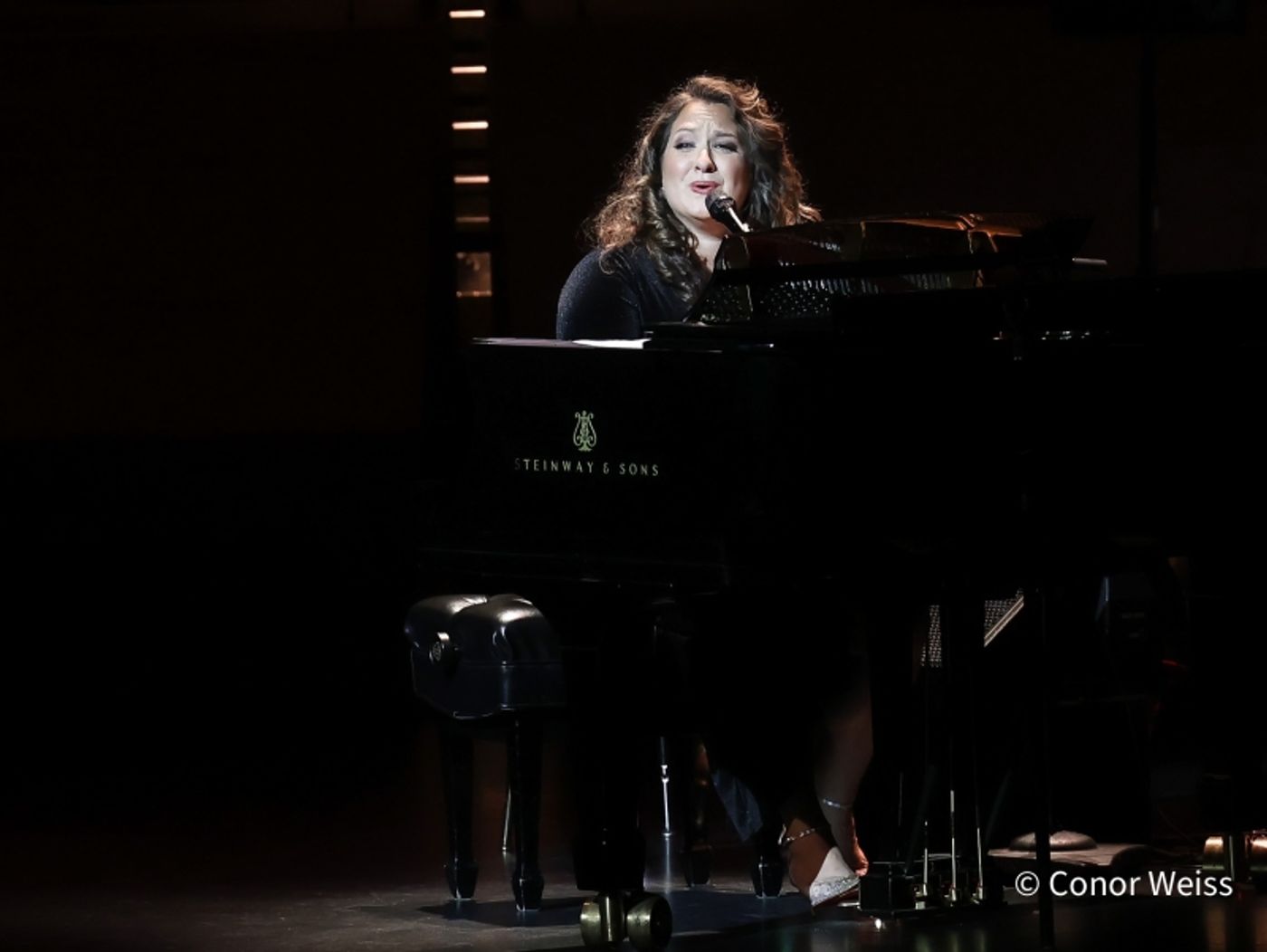 As this concluding night wore on, I again wondered how my impressions might be different from those who weren’t cabaret regulars, such as the friend I’d invited to come with me. A man who’s loved many kinds of music for decades and will sing or play his harmonica at the drop of a hat, he happens to be blind. When he whispered to me that he was very taken by Nicole Zuraitis’s singing of “If Ever I Would Leave You” and the piano accompaniment, he was even more impressed when I told him she was also playing piano for herself. (I was enchanted, too.) He astutely picked up on nuances in the timing and tone of other singers’ performances and audience reactions. Without the visuals that we think of as pluses, but that can actually be distractions, he is hyper-sensitive to the sounds – and the souls that come through. We all hear things from our own vantage points and points of reference and points of entry.
As this concluding night wore on, I again wondered how my impressions might be different from those who weren’t cabaret regulars, such as the friend I’d invited to come with me. A man who’s loved many kinds of music for decades and will sing or play his harmonica at the drop of a hat, he happens to be blind. When he whispered to me that he was very taken by Nicole Zuraitis’s singing of “If Ever I Would Leave You” and the piano accompaniment, he was even more impressed when I told him she was also playing piano for herself. (I was enchanted, too.) He astutely picked up on nuances in the timing and tone of other singers’ performances and audience reactions. Without the visuals that we think of as pluses, but that can actually be distractions, he is hyper-sensitive to the sounds – and the souls that come through. We all hear things from our own vantage points and points of reference and points of entry.
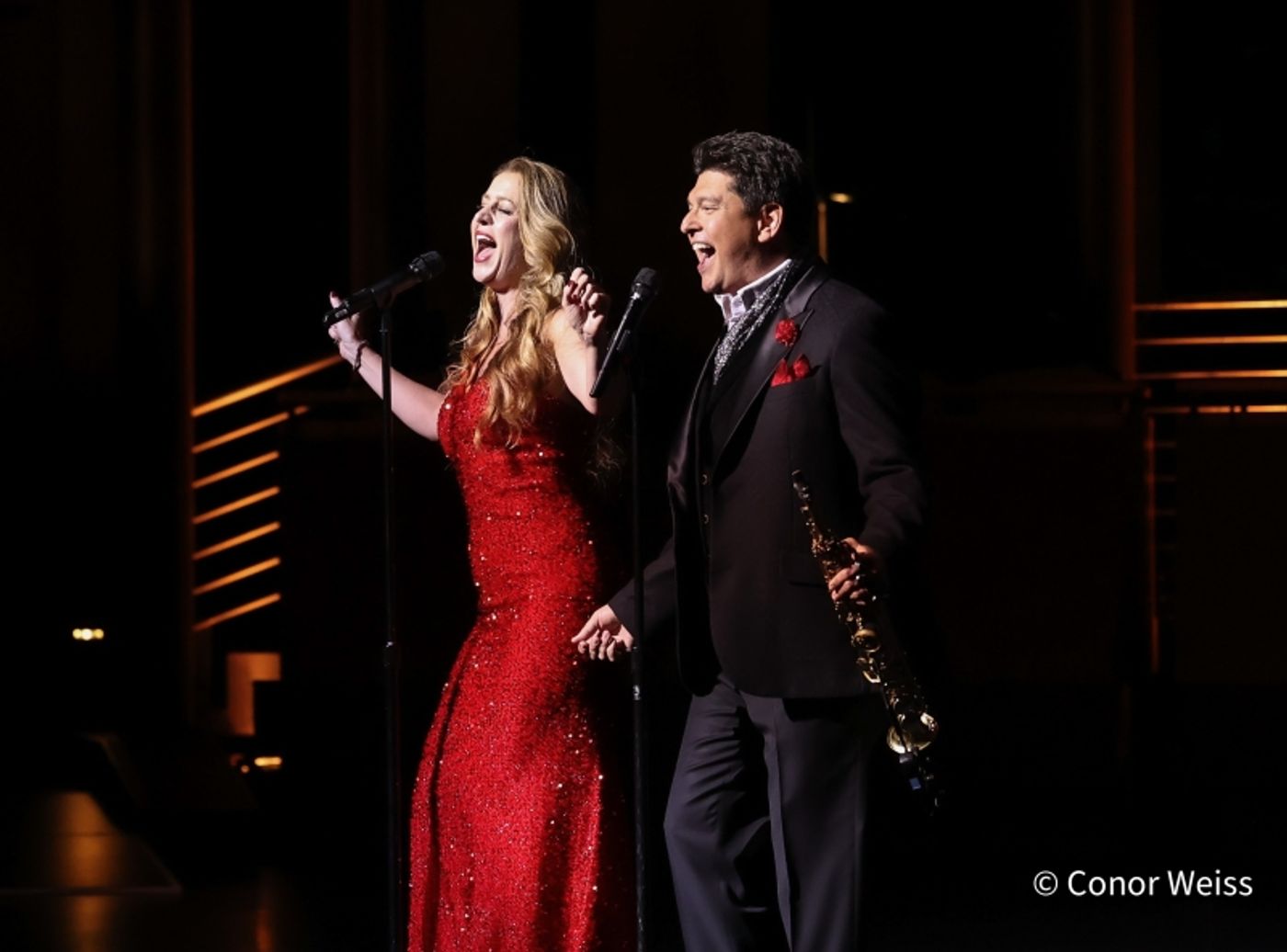
Each of the three nights had its delights. Without the benefit of an applause meter to document hearty, rapturous receptions (before AND after they sang), it was obvious that Marilyn Maye and Sidney Myer are major audience favorites who can do no wrong with a song. I’ll drink to that! Let me mention just a few more highlights — a soloist who needed 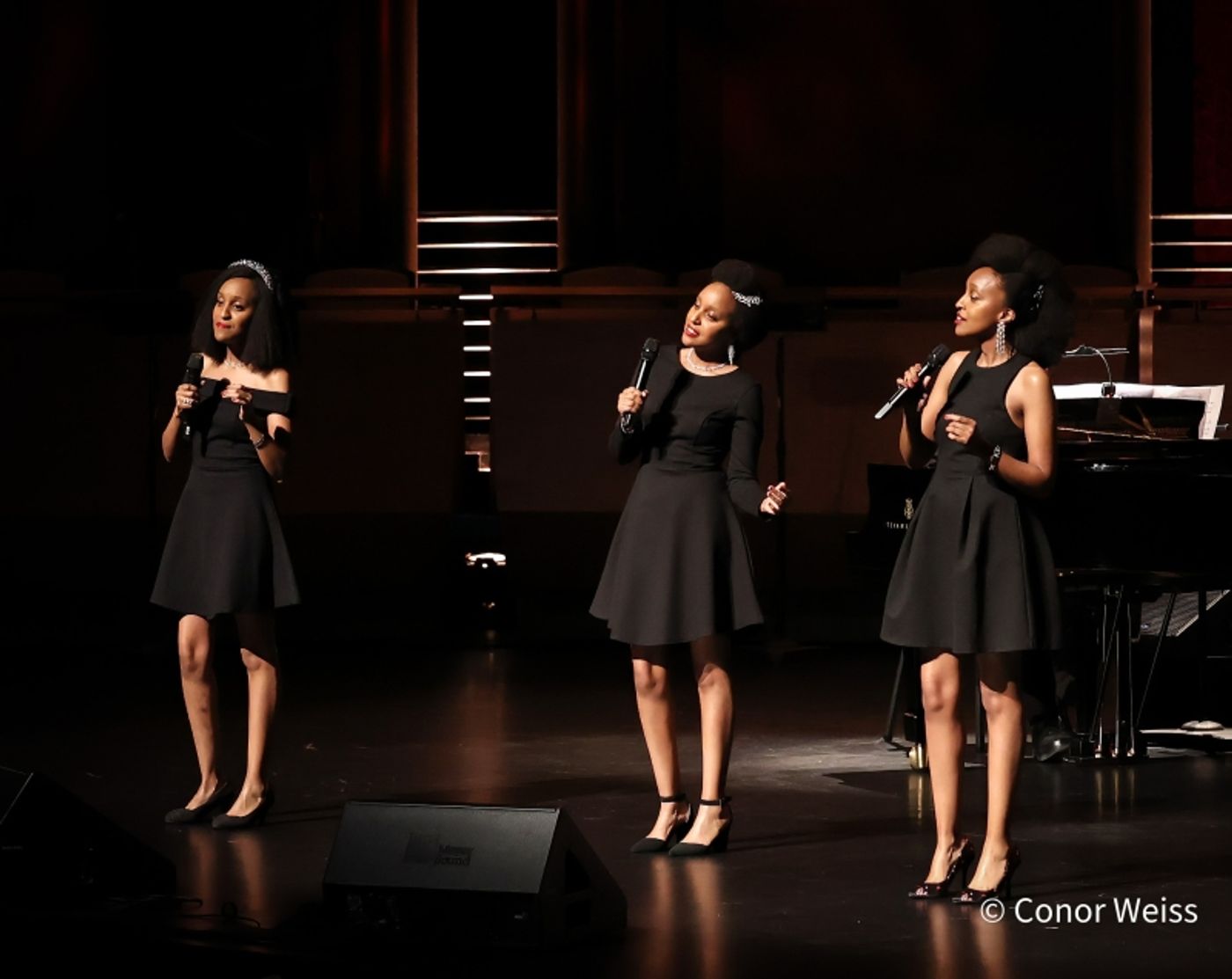 no accompaniment, two twosomes, a female trio, and a female quartet. They were, respectively: the mostly a capella Anais Reno; Minda Larsen and Danny Bacher in a hilarious mock battle for the “right” style to do “Mack the Knife”, the identical female triplets MOIPEI; and Those Girls. But I haven’t mentioned so many other treats — like: Marta Sanders powerfully closing the first program with “September Song” for October bliss; Evening Number Two with two dynamos partnered for panache (Nicolas King and Seth Sikes); and Thursday with one more thrill of the night: “In the Still of the Night” done right by Barbara Fasano. And, as usual, there were expert musicians who are a crucial part of shaping the music in new ways — Jon Weber, Tedd Firth, Christopher Denny, Ray Marchica, Rex Benincasa, Jay Leonhart, Steve Doyle, etc., etc.
no accompaniment, two twosomes, a female trio, and a female quartet. They were, respectively: the mostly a capella Anais Reno; Minda Larsen and Danny Bacher in a hilarious mock battle for the “right” style to do “Mack the Knife”, the identical female triplets MOIPEI; and Those Girls. But I haven’t mentioned so many other treats — like: Marta Sanders powerfully closing the first program with “September Song” for October bliss; Evening Number Two with two dynamos partnered for panache (Nicolas King and Seth Sikes); and Thursday with one more thrill of the night: “In the Still of the Night” done right by Barbara Fasano. And, as usual, there were expert musicians who are a crucial part of shaping the music in new ways — Jon Weber, Tedd Firth, Christopher Denny, Ray Marchica, Rex Benincasa, Jay Leonhart, Steve Doyle, etc., etc.
Gratitude to KT Sullivan and the nonprofit Mabel Mercer Foundation for giving cabaret a firm foundation for the frequent attendees, the “uninitiated,” the new-ish fans, the singers, musicians….and, lastly, the songs that are meant to last.
More on the Mabel Mercer Foundation HERE
Broadway World Cabaret resident photographer Conor Weiss attended all three nights with his camera. His photo essays can be enjoyed HERE, HERE, and HERE (by night).
Reader Reviews
Videos

